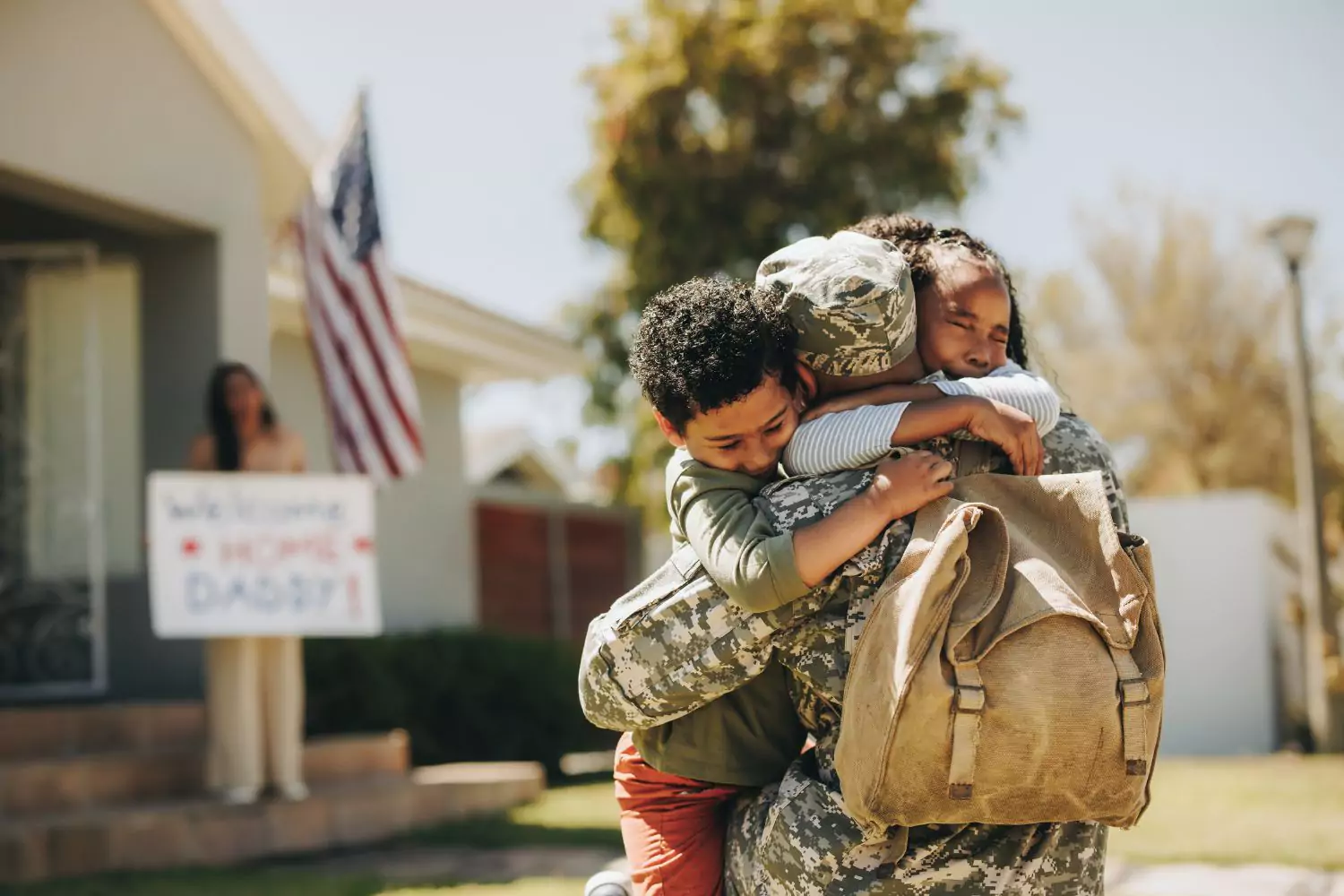Estimated reading time: 4 minutes
Saying goodbye is the hardest thing we do in our family. A military homecoming can be the second.
My husband, Hung, is an explosive ordnance disposal officer, and each time he deploys, I know I have no assurance that he’ll return safely. In the moments before he leaves, I try to absorb every detail — the way he holds me, the curve of his smile. These memories need to last. When he is gone, I wipe away the tears and hug our children. I tell them that we can now begin planning for his return.
For military families, homecoming is more than an event; it is an emotion — months of sadness, anxiety, and loneliness dissolved instantly in the embrace of a loved one. Spouses spend weeks romanticizing the reunion, and when the day finally arrives, there is only the sheer joy of being together again.
That initial euphoria gradually wears off, however, and feelings of disenchantment can set in. The long separation has changed everyone, and instead of being a time of joy and peace, reintegration is often fraught with uncertainty and broken expectations.
How to adjust after a military homecoming
How can military couples navigate home life and ensure a smoother transition before, during, and after homecoming? Here are a few things that can help level the bumps:
1. Sketch out a battle plan
A smooth reintegration hinges on clear and open communication — a process that actually begins in the weeks before deployment. Because the stress from combat, work, and single parenthood can hinder weighty conversations during deployment, it’s easier to negotiate expectations while still together.
Discuss the unique challenges your family may face and how they will be handled during and after separation. Whether finances, child care, or home management, consider what responsibilities you each have in the home and how they will change during deployment and again when the family is back together. Also, discuss your expectations for communication during the separation. How often will you send emails or talk on the phone?
2. Limit the surprises after a military homecoming
During the separation, keep your spouse up-to-date on whatever changes occur in the house. Did you rearrange the living room? Does your schedule keep you away from the house more? Are the kids involved in new extracurricular activities? Little surprises can lead to big disagreements. Keep your spouse in the loop, even if he’s not there to help with every decision.
3. Listen and reconnect
Remember that both of you have been operating in completely different environments, and after the homecoming, it will take time to readjust to being together again. Be honest about sharing feelings while also listening to the needs of your mate. Encouraging your spouse through positive communication will be a big help.
Listen to what your spouse doesn’t say. When my husband returns home, I can tell that he may agree to anything and everything just to see a smile on my face. Dinners with the entire family may sound like a great idea, but in reality, they can be overwhelming and exhausting. Pay attention to nonverbal cues such as fatigue or irritability when scheduling activities.
4. Move slowly with big decisions
Homecoming is not the time to make life-changing decisions. Even though you’ve scrimped and saved during the deployment, avoid buying that new car for a few weeks. If you plan on starting or expanding your family after deployment, give yourselves time to become reacquainted with each other and settle into a comfortable routine. Good ideas will still be good ideas a month or two down the road.
3. Give him time to catch up after a military homecoming
Consider relieving your spouse of some household or disciplinary responsibilities for a short time. My kids are always ecstatic to have Dad back, and I try to give him time to reconnect with the children and observe how we’ve been running the home during the months he was away.
That said, the routines of family life can be comforting, and your spouse may be eager to contribute. If my husband wants to wake up early and unload the dishwasher, I let him!
4. Keep it simple
More often than not, it’s the little things your spouse missed while away. Have the kids help you make his favorite dinner or dessert. Plan movie and game nights, or consider a backyard camping trip with s’mores and flashlight tag. Set aside time with Dad for each child. The simple joys of family life are the best way to grow together after being apart.















